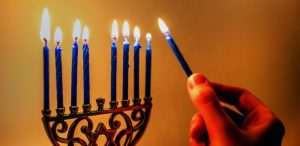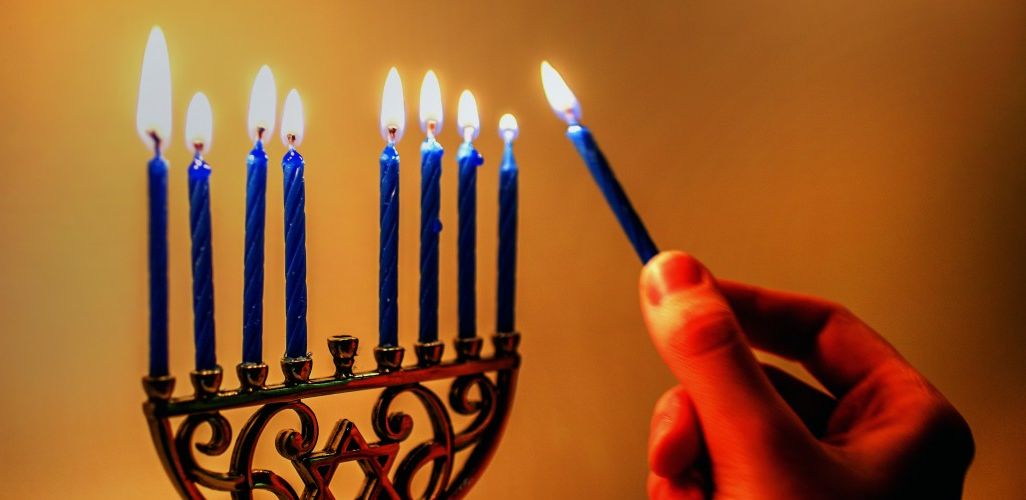
In a parsha laden with intriguing episodes, the sale of Yosef by his brothers certainly stands out. The question shouts at us, how could tzadikim of the magnitude of the sons of Yaakov Avinu, the shivtay kah, commit such a grievous sin.
Both the Ohr HaChaim HaKadosh and the Sforno deal with this issue. The Ohr HaChaim deals with it in a more technical manner so I will discuss the Sforno’s pshat. He explains that the shvatim when they saw Yosef coming, assumed that he was not coming to check on their welfare, but rather to either find some fault on their behalf, or to cause them to sin. This would either lead to their father cursing them or their being punished by Hashem, thereby leaving Yosef alone as a ‘blessed’ son. If Yosef was trying to kill them in this world, and certainly in olam habah, then he was considered a rodef, one who is actively in pursuit with intention to kill. The halacha in such a situation is that one is obligated to take the initiative and kill the rodef. The ten tzadikim sat as a beis din and this was the clear halacha which they decided upon.
The fact that they were tzadikim and were still considered as such even after the sale can be illustrated by their names being on stones of the breast plate of the Cohen Gadol as a reminder before Hashem. We see that their state of mind was that they had not sinned by their calmly sitting afterwards and having a seuda. Whereas Bnei Yisrael after killing Shevet Binyamin sat and cried to Hashem, and even Daryavesh was distraught after throwing Daniel into the lions den, they sat calmly and had a seuda!
Lastly, when confronted by the harshness of the second in command to Paroah they knew that it must be midah kneged midah from Hashem for some sin they had committed. They care takingly scrutinized the previous twenty one years without finding any sin for which they might deserve it! (We’d probably find ample cause with a cursory look at our past twenty one minutes!) Finally, when they reviewed the events of twenty two years past, they understood that this was punishment, not for the sale itself, but rather for their harshness and lack of sympathy to Yosef, midah kneged midah!
However, as Hashem, who sees deep inside each individual testifies, the brothers were jealous of Yosef. Even if these feelings didn’t influence their judgment, they were held accountable for them.
Where did this jealousy stem from? Yosef was a “ben zekunim” of Yaakov Avinu, and was therefore given the ksonas pasim, the special silk coat. Rashi’s second pshat quotes the Targum that ben zekunim means a wise son to whom he passed the teachings that he had absorbed from Shem and Ever. The Klay Yakar explains that the reason that he taught Yosef as opposed to the other sons is simply that Yosef displayed more of an interest.
I, however, saw in the name of Rav Yaakov Kaminetzky zatza”l, that the teachings of Shem and Ever were different then the regular Torah teachings of the Avos and were particularly pertinent to Yosef and not to his brothers. The Toras Avos was to set up a yeshiva in every place that they would find themselves, teach to others, and proclaim the name of Hashem to all. Shem, who lived in the generation of the flood and Ever, who lived in the generation of the tower, found it impossible to begin yeshivas. Their Torah was how to survive amongst terrible resha’im. How not to be affected by the surroundings which are acting contrary to the will of Hashem. This was the Torah that Yaakov learned for 14 years on his way to Lavan, far different than the Torah he had learned as an “ish tam yoshev ohalim”, for 63 years. Yaakov foresaw that Yosef would need this Torah and not his brothers, and therefore taught it only to him. The brothers misunderstood their fathers intentions and thought that they were being treated as an Esav or Yishmael and were therefore jealous. This jealousy set the stage for the galus of Mitzrayim.
As we celebrate this Shabbos Chanuka, we have to realize that the golus of Yavan also had jealousy at its very root. Chazal say that the Yevanim darkened our eyes with their decrees. Chazal choose one decree which seems to epitomize the deeper intentions of the Yevanim. “Write on the horn of an ox that you have no portion in the Elokay Yisrael.”
The Siftei Chaim expounds beautifully on this medrash. “On the horn of an ox.” They wanted to remind us of the chait ha’agel. The Yevanim believed that as a result of that sin, Hashem had rejected us. On a deeper level, Hashem has two ways of dealing with this world; the natural and the supernatural. On the ‘maaseh hamerkavah’, the face of a lion is to the right and the face of an ox is to the left. The ‘stronger’ right hand side symbolizes the hanhagah of the supernatural, the strength and the dominion of the lion. The ox on the ‘weaker’ left symbolizes the ‘natural’ events of the world. The plowing and the planting which allow us to have nature serve our needs. When Moshe Rabeinu was leading us through the wilderness, we merited the miraculous hand of Hashem. The manna, the clouds, the well of water, etc. The mistake of Klal Yisroel was their thinking that if Moshe was no longer with them to bring them to the level of the miraculous, then they were supposed to now drop down to the level of the natural. This was exemplified by the calf that they made. Not a denial of Hashem, but rather a symbol and a reminder that all the natural events which would occur were in reality the ‘hidden’ hand of Hashem. However, for Klal Yisroel to deal on such a level was a spiritual catastrophe which led to actual idol worship.
The Yevanim, along the same lines, wanted us to write on the horn of the ox. The ox which symbolizes the natural and it’s horn which symbolizes it’s strength. They were extremely jealous of the miraculous bond between us and Hashem They wanted us to accept that Hashem only deals, even with the Jews, on a natural level. That there is no special relationship between us and Hashem.
“You have no portion.” Portion, in this context means a partnership. Hashem has made us partners with Him in this world. As the Nefesh HaChaim writes, every act that we, Klal Yisroel do, affects the influences which will come down to this world. Hashem has, in effect, handed the reins over to us. The ‘tov’ and ‘ra’ in this world are brought about by our acts of drawing close to Hashem or by, c”v, distancing ourselves from Him.
Rav Brevda came to the Yeshiva and spoke about how we all want to make the big decisions. Nuclear disarmament, peace with Syria, pullout from Chebron. In reality, of course, we can’t make those decisions. We must settle for the little decisions; should I go to minyan, should I make the seder, should I speak the lashon horah. What we must realize is that it is those ‘little’ decisions which will determine those big issues. That is our portion, our partnership, with Hashem. The bracha that can be in this world is in our hands to bring. That, the Yevanim, couldn’t handle. They wanted us to write that we have no portion, no partnership.
“In Elokay Yisroel.” Hashem runs this world through a command structure of agents. Many of these agents were, at different stages of world history, worshiped as idols. As if they had some power, independent of Hashem. They do have power, and therefore can carry the same name as Hashem, elohim, but only as delegated by Hashem. The name of Hashem which refers to this aspect of Him being the power source is Elokim. That’s why we say, Hashem Elokim Emes. The only true power source. Elokay Yisroel refers to our actions having the ability to either turn on, or turn off, that power. We have that partnership with Elokay Yisroel and we affect that power with our ‘little decisions’. With our adherence to Torah and mitzvos and our conquering of that olam hakatan, ourselves. The Yevanim wanted to have that control through their connection to the natural. External beauty as opposed to inner perfection. “No portion in Elokay Yisroel.”
May Hashem give us the meiras einayim, the clarity of vision, to realize the unique and central role that we play in this universe. To recognize the special partnership that we share with Elokay Yisroel, and with the vigor of a lion, to accept that responsibility and act accordingly. May that bond be strengthened to the point that we too will light the menorah in the Beis Hamikdash.
Good Shabbos.
Yisroel Ciner
Copyright © 1997 by Rabbi Yisroel Ciner and Project Genesis, Inc.
The author teaches at Neveh Tzion in Telzstone (near Yerushalayim).


